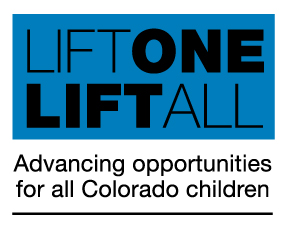In June 2005, Children’s Voices, acting on behalf of fourteen school districts in the San Luis Valley and parents and children across the state, filed a complaint against the State of Colorado, the State Board of Education, the State Commissioner of Education, and the Governor’s office, challenging the constitutionality of the Colorado school finance system. The lawsuit is titled Lobato v. State of Colorado.
In 2010, an additional seven school districts, including Jeffco, Aurora, and Colorado Springs D11, joined the case as plaintiff school districts, and some parents and students from Denver Public Schools joined as individual plaintiffs. Also, in 2010, the Mexican American Legal Defense and Educational Fund filed a Complaint in Intervention on behalf of English Language Learner and low income students in an additional four school districts.
Plaintiffs and Plaintiff-Intervenors’ challenge is based on two clauses in the Education Article. The Education Clause directs the General Assembly to “establish and maintain a thorough and uniform system of free public schools throughout the state, wherein all residents of the state, between the ages of six and twenty-one years, may be educated gratuitously.” The Local Control Clause empowers local boards of education with the “control of instruction in the public schools of their respective districts.”
We argue that the Education Clause requires the legislature to provide every school age child in the State with the opportunity to obtain a quality education. A quality education is at a minimum one that prepares our children for life within the civic, economic, and cultural world in which they will participate as adults. A critical part of the education system is a finance system designed to pay the necessary costs to assure a constitutionally adequate education. When the State fails to implement a school finance system to meet this obligation, we contend that it has failed to fulfill its constitutional obligation.
We argue that the Local Control Clause empowers local boards of education with the decision-making authority to implement, guide, and manage the educational programs for which they are ultimately responsible. When the legislature prevents school districts from obtaining sufficient funding to provide their school children with a quality education, it violates the constitutional right of the local school board to control instruction in their schools.
Independent studies demonstrate that Colorado has failed to provide sufficient funding for public schools for decades. The public school finance system is not designed to meet the mandate of the Education Clause; indeed, the State has never attempted to determine the cost of a quality education, much less fund the school districts at the levels necessary to meet that cost. This violates the rights of all school children, but particularly those of students with special needs, including children of poverty, English language learners, special education students, and students at risk of failure.
On October 19, 2009, the Colorado Supreme Court ruled that the public school finance system must be reviewed by the courts to assure that it meets the constitutional requirement of a “thorough and uniform” system of public education. In a 4-3 decision, the Court held that the claims of the plaintiff parents, school children, and school districts in Lobato v. State may proceed to trial.
A five-week trial was held in August 2011-September 2011. On December 9, 2011, Denver District Judge Sheila Rappaport found, in a 183-page decision, that Colorado’s entire system for funding public schools is “irrational, arbitrary, and severely underfunded,” and therefore violates the Colorado Constitution. On January 23, 2012, the State Defendants filed a notice that it will appeal the district court decision to the Colorado Supreme Court.

